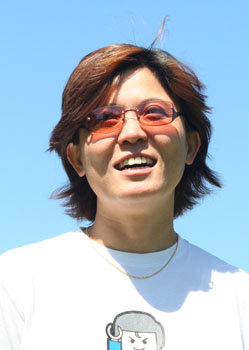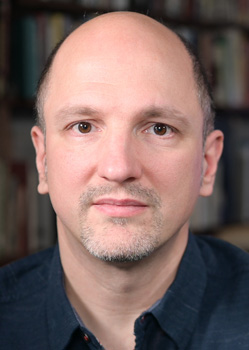Download the Zoom recording!
Topic: 3rd Symposium on Storytelling with Data
Date: November 30, 2021 1pm
Data analysis is not only about statistics and visualization - meaningful insight originates from a story that connects the dots. How can we tailor results to specific audiences, for example students, clinicians, patients, or the public and present them in a way that they are easy to interpret and remember? Data storytelling is a powerful tool to address this challenge. The approach integrates data, domain expertise, intuitive visualization, and narration.
Please join us 1-5 PM on November 30 via Zoom.
WHY ATTEND
- See how storytelling can be used in research and education.
- Learn about techniques and best practices.
- Find out how to structure stories to make a point.
- Connect with others interested in communicating data effectively.
The event is organized in collaboration with the Department of Computer Science, the Institute for Advanced Analytics, and the Bioinformatics Research Center and sponsored by BCBS of NC, OneTrust, PRA Health Sciences, Renaissance Reinsurance, the ePartners Program and the NC State Engineering Foundation.
Attendance is free, but please be sure to register. We will send you a zoom link before the event.
PROGRAM
1:00 Welcome
1:10-1:40 How to Tell a Story ––––––––––––––––––––––––––––––––––––––––––––––––––––– Larry Birnbaum.
This talk approaches data storytelling from a pragmatic perspective. What are the key objectives of a data-driven story? What are the key organizing principles for the mechanisms required to achieve these objectives? How should data and data analytics be marshaled in this effort? How can the results of relevant data analytics be “translated” into appropriate propositional interpretations, and ultimately linguistic terms? How can these interpretations be organized to produce a coherent story? These are the questions that need to be addressed in understanding the nature of data storytelling and, most likely, in developing successful data storytelling systems. This talk will provide some possible answers to these questions using specific examples.
1:40-2:10 Interactive Authoring of Expressive Visualization for Data-Driven Storytelling ––––– Bongshin Lee.
We see a growing need and use of data visualization to tell compelling stories supported by data. Both researchers and practitioners continually develop novel techniques to integrate data visualization into a cohesive narrative. In this talk, I will present my research on data-driven storytelling, focusing on interactive authoring systems developed to empower people to easily create expressive visualization without programming. I will also briefly discuss the challenges of evaluating such authoring systems, as well as future research directions in this exciting field.
2:10-2:40 The Friction with Fiction: Cognitive Expectations Around Data Narratives ––––––– Michael Young.
Narrative is a fundamental mode of understanding the world around us, so of course it makes terrific sense to think about leveraging narrative to help understand data. But whether learned or innate, our expectations around stories and how they’re told to us drive our comprehension processes in ways that may run afoul of data driving their creation. Not all stories are tellable, as the narratologist David Herman describes. I’ll talk about some of the cognitive models of narrative comprehension developed by psychologists to explain our processing of stories, and then sketch out ideas around how narrative generation, informed by the desire to present data through stories, can help to work with human comprehension processes leveraging these models.
2:40-3:20 Virtual Coffee Break & Breakout Sessions:
- TBA
3:20-3:50 Visualizing A Natural History of the Future –––––––––––––––––––––––––––––––––––– Rob Dunn.
Visualizations of the far future directly inform the ways in which individuals, local governments and world-level organizations plan for the future. This is particularly true with regard to visualizations of cities. What has gone missing from these visualizations, whether with regard to colonies on Mars or future versions of Manhattan, is wild life. Here, I show through a series of simple data visualizations, the extent to which lifeless views of the future are misguided. I then consider the question of how data visualization might be used to help reimagine futures that account for the inevitable diversity of life all around us.
This talk draws on Dunn's upcoming book, A Natural History of the Future.
3:50-4:20 Structuring Stories to Make A Point –––––––––––––––––––––––––––––––––––––––– Robert Kosara.
Data storytelling follows in the footsteps of traditional stories that have been around for thousands of years. But how much do traditional story templates like the hero's journey really translate? What other ways of structuring stories are there that might work better for the more hybrid argument-story that is often built around data?
Data stories are different not just because they involve data, but also because they serve very different purposes than traditional stories. They raise questions, point out alternatives, try to convince, etc. Their structure needs to follow the goals and purposes they are expected to serve for them to be successful. Drawing from recent research, including some of my own, I will survey what we've learned from data journalism, comics, screenwriting, and other fields.
4:20-4:30 Coffee-break
4:30-4:55 Questions from Audience, Speaker Panel
4:55Closing remarks

Larry Birnbaum is Professor of Computer Science at Northwestern University, where he co-directs the Intelligent Information Laboratory, with a research focus on applied AI and human-AI collaboration. He and his students develop, study, and apply new technologies in natural language processing, intelligent information systems, social media data analytics, machine learning, computational journalism and media, conversational interfaces, and automatic content generation. Together with colleagues and students, Larry has published more than 150 papers on these topics and holds 56 U.S. patents.
Larry was Chair of Computer Science at Northwestern from 2014 to 2019, during which time the department grew from 20 faculty to a total of 37, and student majors from about 100 to more than 500. He currently serves as an advisor to the AI and Data Science Program at Jio Institute, a new university being established in Navi Mumbai, India. Larry received his B.S. and Ph.D. degrees in Computer Science from Yale, and was on the faculty there before joining Northwestern.
Larry is also Co-Founder and Chief Scientific Advisor of Narrative Science, an AI start-up based on technology developed at Northwestern that builds and markets technology to automatically generate narratives from data, at scale. The company’s mission is to make the world’s data meaningful to people through stories.

Bongshin Lee is a Sr. Principal Researcher at Microsoft Research. She conducts research on data visualization, human-computer interaction, and human-data interaction, focusing on the design, development, and evaluation of novel data visualization and interaction techniques. With the overarching goal of empowering people with different abilities, Bongshin explores innovative ways to help them interact with data, by supporting easy and effective data collection, data exploration & analysis, and data-driven communication. She has served on many organizing committee roles in several conferences, including IEEE VIS and ACM CHI. Bongshin is a member of the IEEE Visualization Academy. She received her PhD in Computer Science from the University of Maryland at College Park.

Michael Young is the Director of the Entertainment Arts and Engineering Program, Professor in the School of Computing and Adjunct Professor in the Department of Philosophy at the University of Utah in Salt Lake City, UT, where he directs the Liquid Narrative research group. He is also an adjunct professor of Computer Science at NC State University. He works to develop computational models of interactive narrative with applications to computer games, educational and training systems and virtual environments. His work is grounded in computational approaches, but seeks to cross disciplinary boundaries, involving collaborators and concepts from cognitive psychology, linguistics, narrative theory, cinematography and other disciplines where human cognition and interaction are central. He is an ACM Distinguished Scientist and a senior member of both the Associate for the Advancement of Artificial Intelligence (AAAI) and the IEEE. In 2017, he was elected to the inaugural class of HEGVA Fellows by the Higher Education Video Game Alliance.

Visualizations of the far future directly inform the ways in which individuals, local governments and world-level organizations plan for the future. This is particularly true with regard to visualizations of cities. What has gone missing from these visualizations, whether with regard to colonies on Mars or future versions of Manhattan, is wild life. Here, I show through a series of simple data visualizations, the extent to which lifeless views of the future are misguided. I then consider the question of how data visualization might be used to help reimagine futures that account for the inevitable diversity of life all around us.
This talk draws on Dunn's upcoming book, A Natural History of the Future.

Robert Kosara is Lead Research Scientist at Tableau Software and a former professor of Computer Science at UNC Charlotte. His research interests revolve around the uses of visualization for communication: how do we read charts, how do we use unusual chart types to capture attention and help a message stick in the viewer's memory, how do presentation and storytelling with data work in different contexts, etc. In addition to publishing in the visualization literature, Robert has run his eagereyes blog for over 15 years and posts videos about data visualization to his YouTube channel of the same name.